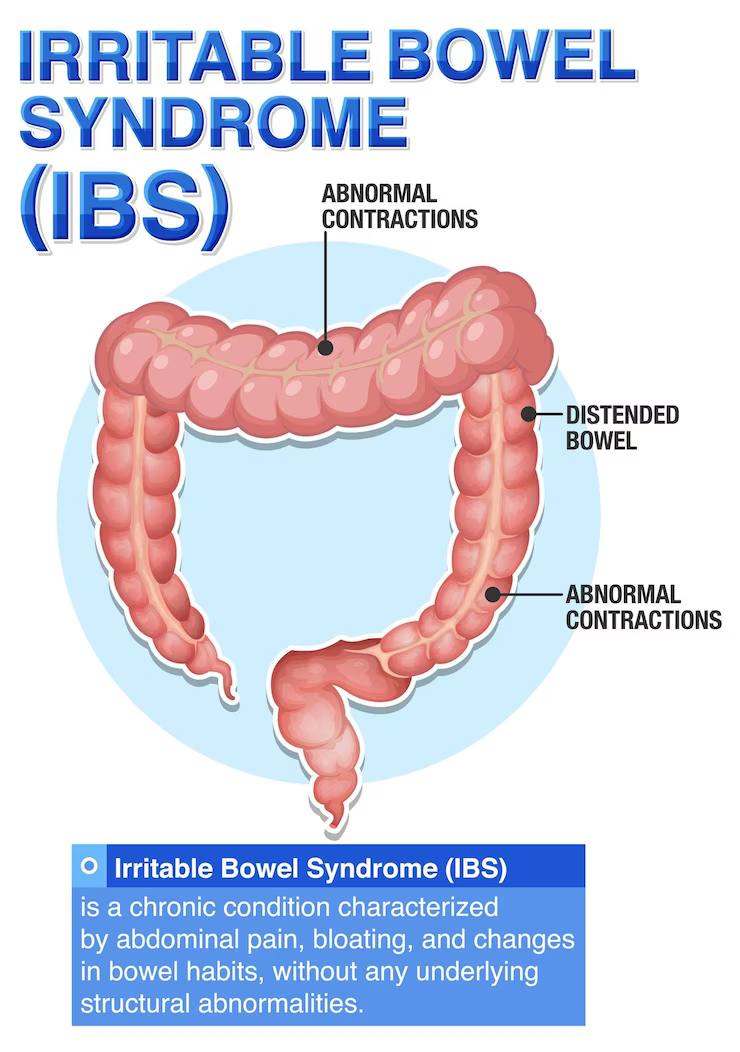Diseases | Adult's Health | Irritable Bowel Syndrome

IBS is one of the most common disorder of digestive system producing a spectrum of symptoms such as persistent and recurring abdominal pain associated with passing of motion, change of bowel habit (diarrhoea, constipation, or alternate diarrhoea and constipation), etc. without any apparent cause. The word syndrome means a group of symptoms. IBS is a syndrome because it can cause several symptoms in addition to those mentioned, like cramping, bloating, gas, frequent urge to pass stools, sensation of incomplete evacuation etc.
IBS is the disorder of function, which means that the bowel doesn’t work, as it should. If one visualizes the bowel, it appears perfectly normal without any inflammation or other structural changes. In people with IBS, the intestines squeeze too hard or not hard enough and cause food to move too quickly or too slowly through the intestines.
Through the years, IBS has been called by many names–colitis, mucous colitis, spastic colon, spastic bowel, and functional bowel disease, irritable colon, and nervous colon. Most of these terms are inaccurate and refers to understanding of diseases at that particular time frame. Colitis, for instance, means inflammation of the large intestine (colon). IBS, however, does not cause inflammation of the bowel and should not be confused with another disorders like ulcerative colitis.
IBS and Stress:
The key point is that IBS is strongly related to emotional stress and strain. Research on the psychosocial aspects of these disorders has yielded three general observations:
1) Psychological stress exacerbates gastrointestinal symptoms
2) Psychological disturbances amplify illness experience and adversely affect health status
3) Having a functional GI disorder like IBS impairs the quality of one’s life
Positive points
Interestingly, even though the symptoms of IBS can be very painful and debilitating in some, it should be emphasized that this is never a life-threatening condition. Those afflicted with IBS do not have any greater chances of developing inflammatory conditions of bowel like Crohn’s disease or ulcerative colitis, neither do they pose any higher risk of having colon cancer. Moreover this disease cannot be passed to other individuals like some of the infections may have chance to do so.
Last but not the least is that with revolutionary mode of treatment of Homeopathy, IBS can be brought under control effectively, gently and safely.
